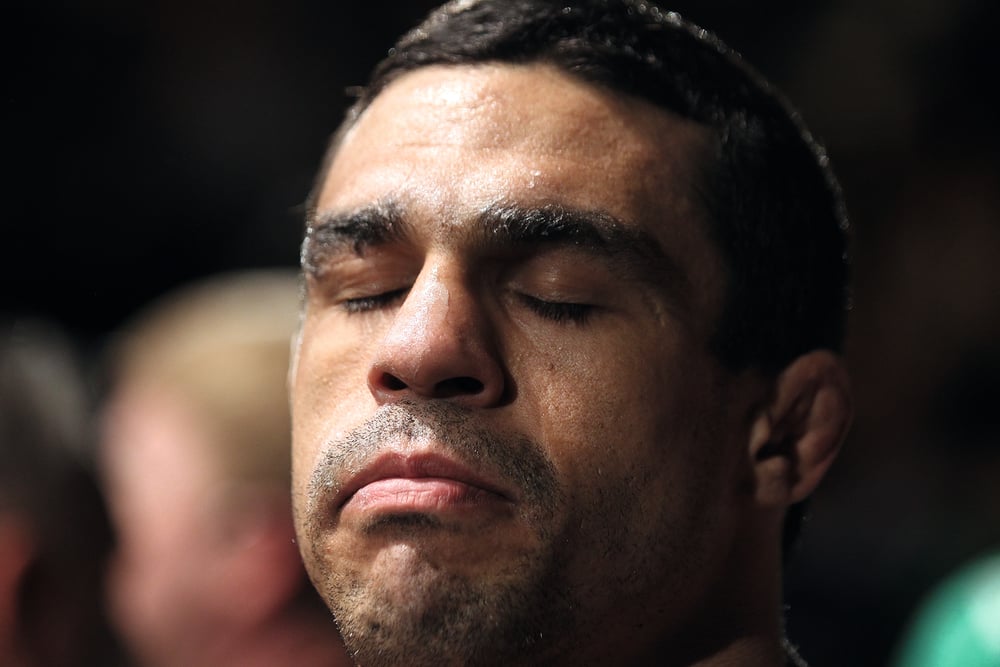
Issue 092
September 2012
Create a cage-tough version of yourself
The emotional and physical chaos of the ring compels fighters to undergo a psychological metamorphosis into a more confident, violent and resilient extension of themselves. Which often is the basis for stereotypical labels commonly attached to fighters by those outside of MMA: brute, unintelligent, meathead. This couldn’t be further from the truth. The man in the cage is not a reflection of the man outside. I have yet to meet a mixed martial artist who isn’t affable, grounded and switched on. But when they step foot inside the (usually) eight-sided domain they switch mental gears to a ‘combative state’ and become the person they need be. The sport demands it.
For many fighters, this temporary psychological shift into ‘fight mode’ evolves naturally as a knock-on effect of combat experience and cage time. But for a number of reasons a mass of naturally gifted fighters struggle to ‘get into character’ when the gate locks, and are never able to unleash their true potential.
To help you release the beast within, we veer away from sport psychology, as the extreme nature of mixed martial arts requires something with an extra kick and unorthodox that will get the job done. Enter street self-defense expert and fellow psychologist Richard Grannon (www.streetfightsecrets.com). He teaches his clients to create and develop what he terms the ‘supra-state’.
“The supra-state is a model of combative psychology in which the practitioner deliberately seeks to create an alter ego or version of themselves that is more capable of dealing with the mental anarchy and corporeal brutality of fighting than the practitioner’s normal personality is,” Richard tells FO.
Here, he walks us through the technique that will allow you to engage a separate part of your personality designed by you to act as a kind of cage-bound mercenary when you call upon it.

1 The main optimum psychological micro states for optimal performance in competitive fighting are:
CONFIDENCE
CALMNESS
FOCUS
AGGRESSIVENESS
2 For you and you alone, write and list specifically how you would describe each of these four micro optimal psychological states.

3 Relax, think of times when you have experienced every single one of these micro states. Go deeper, visualize yourself feeling these individual states whilst in cage; the sensation of your gumshield in your mouth, the tightness of your wraps inside the glove, the smell of Tiger Balm, the roaring crowd, your walkout music, even address the fact that your opponent will do whatever it takes to beat you. How does that make you feel? Go through each of your five senses of being in and around the ring. Each one needs to be fully and vividly relived so your neurology can begin to build an association between each micro state.

4 Now defocus as if you’re day-dreaming (think Fedor). Imagine you’re absorbing these micro states and feeling them all at once. Now ante-up and double the feeling, let it consume you, and when it does, double it again. Imagine going through an entire fight in this state of combined set of micro states. This is the supra-state. Run this short visualization exercise three or four times right now. If done right you should feel like your body’s a revving engine capable of running through a wall!
5 Practice going in and out of your supra-state frequently; due to a psychological phenomena called fractionation the more often you do this the better able you will be in accessing this state and the quicker and more powerfully it will be. Do this in training, in sparring and when you fight. The more you do the brain will better obey your command – like an organic bio-computer. Unlike a computer and more like a muscle, the brain/neurology needs repetition before it is programmed/conditioned. So remember:
Whatever your programming, you must give it a commanding way. Not weak-willed. Tell your brain what you want.
Commands must be backed up with conviction and emotion.
Instruction must be cemented with imagination and vivid visualization.
“Parts of your brain cannot differentiate between real reality and reality that is vividly imagined,” says Grannon. “The difference between a win and a loss... is likely to be something occurring on a psychological and emotional level which is dominated by our imagination.”
...









